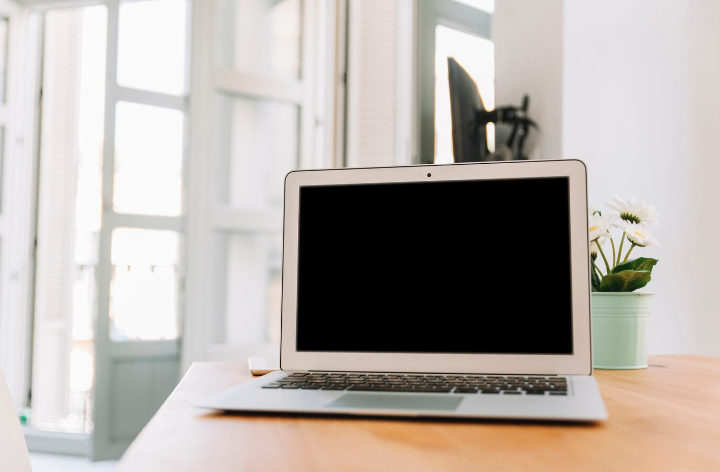Introduction
In today’s digital age, a laptop is more than just a piece of technology; it’s a vital tool for work, education, and entertainment. Given the substantial investment they represent, it's crucial to ensure they last as long as possible. But how can you extend the lifespan of your laptop? This comprehensive guide offers essential tips to keep your laptop running smoothly and efficiently for years to come. From maintenance and care to software tweaks, we've got you covered. Let’s dive in!

Proper Handling and Physical Care
Gentle Handling
One of the simplest yet most overlooked aspects of extending your laptop’s lifespan is handling it with care. Avoid dropping or bumping it, and always use a protective case or bag when transporting it. Physical shocks can damage internal components, leading to costly repairs or even rendering your laptop useless.
Cleanliness Matters
Keeping your laptop clean is essential for its longevity. Dust and debris can clog the cooling fans, causing overheating and potentially damaging the internal hardware. Use a soft, dry cloth to wipe the screen and keyboard regularly. For deeper cleaning, use compressed air to blow out dust from the vents and keyboard.
Proper Storage
When not in use, store your laptop in a cool, dry place. Avoid leaving it in hot or humid environments, as these conditions can damage the battery and internal components. Additionally, ensure it’s placed on a flat, stable surface to prevent accidental falls.
Battery Care and Maintenance
Optimal Charging Habits
The battery is one of the most critical components of your laptop. To extend its lifespan, avoid keeping your laptop plugged in all the time. Instead, follow a charge-discharge cycle: charge it to around 80-90%, then let it discharge to 20-30% before recharging. This practice helps maintain the battery’s health and efficiency.
Avoid Extreme Temperatures
Extreme temperatures can significantly affect your laptop’s battery life. Avoid using your laptop in excessively hot or cold environments. If your laptop becomes too hot, shut it down and let it cool before continuing to use it.
Battery Calibration
Regularly calibrating your laptop’s battery ensures accurate readings of the battery life. To do this, charge your battery to 100%, then let it drain completely until the laptop shuts down. Recharge it back to 100% without interruptions. Performing this once every few months can help maintain battery performance.
Software Optimization and Maintenance
Regular Updates
Keeping your operating system and software updated is crucial for your laptop’s performance and security. Updates often include patches and fixes that can improve system stability and efficiency. Set your laptop to update automatically or check for updates regularly.
Antivirus Protection
Installing a reliable antivirus program protects your laptop from malware and other security threats that can degrade performance or cause data loss. Regularly scan your system for threats and keep your antivirus software up to date.
Disk Cleanup and Defragmentation
Over time, your laptop accumulates unnecessary files and fragmented data, which can slow down performance. Use built-in tools like Disk Cleanup and Disk Defragmenter (or equivalent programs) to clean up junk files and optimize your hard drive. This helps maintain smooth and fast system performance.
Managing Hardware and Upgrades
Cooling System Maintenance
The cooling system is vital for preventing overheating, which can damage internal components. Ensure that the cooling fans are functioning correctly and not obstructed by dust. Consider using a cooling pad to provide additional airflow, especially during intensive tasks like gaming or video editing.
Memory and Storage Upgrades
Upgrading your laptop’s memory (RAM) and storage (SSD or HDD) can significantly boost its performance and extend its usability. More RAM allows for smoother multitasking, while an SSD can drastically reduce boot and load times. Check your laptop’s specifications to see what upgrades are possible.
Usage Habits and Best Practices
Avoiding Overheating
Overheating is a common issue that can shorten your laptop’s lifespan. Avoid using your laptop on soft surfaces like beds or couches, as these can block the cooling vents. Instead, use it on a flat, hard surface. If you notice your laptop getting too hot, give it a break and allow it to cool down.
Safe Shutdown Practices
Always shut down your laptop properly rather than just closing the lid or pressing the power button. This ensures that all programs close correctly and prevents data corruption. If you’re stepping away for a short time, consider putting your laptop in sleep or hibernate mode.
Data Backup
Regularly backing up your data protects you from data loss due to hardware failure or other issues. Use cloud services or external drives to keep copies of important files. This not only safeguards your data but also makes it easier to recover your system if needed.
Conclusion: Keep Your Laptop Running Smoothly
By following these essential tips, you can significantly extend your laptop’s lifespan and keep it running smoothly for years. Proper handling, regular maintenance, and smart usage habits are key to preserving your investment. Remember, a little care goes a long way in ensuring your laptop remains a reliable tool in your daily life.
